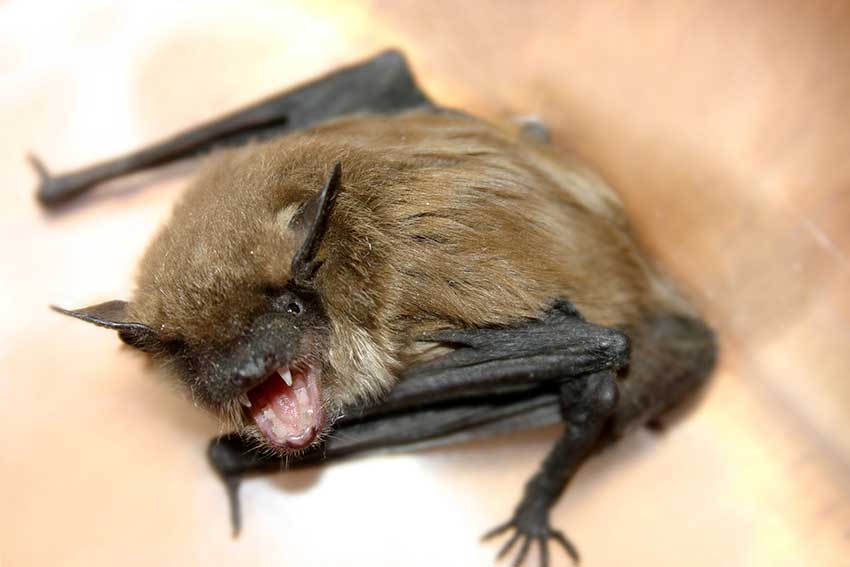RiskVA
Wild Animals Get Sick Too. And Some Make Us Sick, Too 21 Dec 2016
The fields and forests are populated by a wide variety of animals. Some of them are humans. But people are unique. Although we are subject to a wide variety of diseases, many of them can be prevented with vaccines or treated with antibiotics and antiviral medications. But what about wildlife? They get sick too. Sometimes they, as we do, just get over it. Others simply die. There are no wild animals with veterinary degrees toting little bags of meds. Neither are there wild animal medical aid stations in the woods.
There are two things to consider about wild animal diseases. Some only make the animal sick. Others they can share with people.
One of the most serious illnesses which both wild animals and people are subject to is rabies. It’s a common disorder throughout the United States and principally other countries. Many years ago, “mad dogs” were the bane of mid-summer. They are still common in many foreign countries. In the past an untreated person bitten by a rabid animal was guaranteed almost 100% to die.
Wild rabid animals seldom behave like a raging maniac or the dog in To Kill a Mockingbird. They usually just get progressively sicker, quietly crawling off somewhere to die. However, some do become violently aggressive.
Then along came Louis Pasteur who was able to develop a human treatment for rabies from rabid dog nerve tissue. The treatment involved about 20 injections, was potentially dangerous, and very painful. Later on, rabies vaccine was produced from egg embryos, and nowadays there is a vaccine called Human Diploid Cell Vaccine. Usually three injections in the shoulder muscle are required. It is virtually 100% effective if the bitten person seeks medical treatment soon after the bite.
Dogs and cats are not the only animals that contract and transmit rabies. Any mammal can, even cows and horses. Common wild animal carriers are bats, skunks, raccoons, coyotes, and even squirrels. In our area skunks and foxes are the most likely carriers. But bats are high on the list. If you find a sick or injured bat, don’t touch it.
When I was a Park Ranger at Grand Canyon National Park we had an abundance of golden-mantled ground squirrels. They become accustomed to visitors feeding them scraps and would fearlessly come right up to your feet. Once in awhile, someone would be bitten by a clumsy squirrel that couldn’t tell a finger from a peanut. Into the visitor center came the victim to display their chomped finger and asking “do your squirrels ever carry rabies?”
The answer was always somewhat quizzical. “Yes, they do sometimes. If you are bitten there are two possibilities. Tell us which one bit you and we’ll put it under observation. If it doesn’t have rabies, you don’t have to worry. If it did, there are two possibilities. (How do you tell one squirrel from another?) You’ll either get rabies, or you won’t. If you don’t, you don’t have to worry. If you do you’ll either live or die. If you don’t, you don’t have to worry. And if you do, there are two more possibilities. You’ll either live, or you’ll die. If you live, you don’t have to worry. If you die. Well – there are probably still two possibilities…”
One of the most common insect vectors are mosquitoes. They can carry West Nile Virus, Zika, dengue, malaria, yellow fever, and a host of other ailments. Malaria and yellow fever were once common from Texas clear up into Michigan. But there are preventative vaccines for both now. A Zika vaccine is now in the testing stage and hopefully will soon be available.
Here are a few simple rules. Never approach or feed wild mammals. It isn’t good for their health to dine on “people food,” and if you are bitten you are in a real quandary. If an animal is behaving oddly or seems sick, get away from it and report it.
Bears, elk, and bison may simply tear you up, and your car. Remember, wild animals are not tame; they’re wild and called that for a reason. They are not cuddly. They are jumpy, subject to sudden over-reaction, and have a limited sense of humor. Look – but don’t approach or touch.
Enjoy your summer ventures into the wilds of the fields and forests, but remember that the animals out there don’t play by the same rules you do. Have a safe and pleasant summer.
Dr. Risk is a professor emeritus in the College of Forestry and Agriculture at Stephen F. Austin State University in Nacogdoches, Texas. Content © Paul H. Risk, Ph.D. All rights reserved, except where otherwise noted. Click paulrisk2@gmail.com to send questions, comments, or request permission for use.


